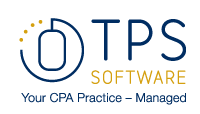Artificial intelligence (AI) is becoming increasingly prevalent in the accounting industry, with many accountants using AI-powered tools to streamline their workflows and improve their efficiency. While AI can be a powerful tool, it’s important to be aware of the risks and dangers associated with its use. In this blog post, we’ll explore some of the potential dangers of using AI in accounting, and provide some best practices to help you use AI safely and effectively.
Security and Privacy Risks
One of the primary concerns with using AI in accounting is the risk to security and privacy. AI tools may require access to sensitive financial information, such as bank account numbers, social security numbers, and tax information. If this information falls into the wrong hands, it can lead to identity theft, fraud, and other serious security issues. To mitigate these risks, it’s important to use secure, trusted AI tools that comply with data protection regulations.
Lack of Transparency
Another potential danger of using AI in accounting is the lack of transparency in the decision-making process. AI-powered tools may use complex algorithms and machine learning to analyze data and make decisions, but it can be difficult for humans to understand how these decisions are made. This lack of transparency can lead to errors and bias, and can also make it difficult to detect and correct mistakes.
Dependency on Technology
While AI can be a powerful tool for streamlining accounting tasks, it’s significant to remember that it’s not infallible. Relying too heavily on AI-powered tools can lead to a dependency on technology that can be difficult to break. This can make it difficult to detect errors or identify problems that require human intervention. To avoid this risk, it’s important to maintain a balance between using AI to streamline processes and relying on human expertise to provide oversight and review.
When Not to Use AI in Your Accounting Practice
While AI can be a powerful tool for streamlining accounting tasks, there are certain situations where it may not be appropriate or effective. Here are some examples of when you may want to avoid using AI for accounting:
When Dealing with Sensitive Information
As mentioned earlier, it’s important to be careful about sharing sensitive financial information with AI-powered tools. This is particularly true when dealing with confidential information such as personal identification numbers (PINs), bank account numbers, and credit card information. In these cases, it’s best to rely on manual data entry and processing, or to use secure, trusted tools that comply with data protection regulations.
When Working with Unusual or Complex Transactions
While AI can be effective at detecting fraudulent activities and identifying patterns in financial data, it may not be as effective when dealing with unusual or complex transactions. For example, AI may struggle to identify transactions related to mergers and acquisitions, or to identify patterns in transactions related to real estate or other high-value assets. In these cases, it may be more effective to rely on human expertise and judgment to analyze the data.
When Interacting with Clients
While AI can help automate certain tasks, it’s important to remember that accounting is ultimately a people-driven profession. Clients may be hesitant to trust automated systems and may prefer to interact with a human accountant. In these cases, it’s significant to maintain a balance between using AI to streamline processes and providing a personalized, human touch to client interactions.
Pairing AI with Accounting Practice Management
AI can bring exciting tools and support for accountants, but using it responsibly is key. By harnessing AI-powered tools for functions such as customer support, marketing assistance,and content generation, you can effectively incorporate AI into your firm while focusing on security.
For tasks that demand a human touch—such as client data organization, workflow enhancement, and comprehensive report generation—look no further than TPS Cloud Axis, a practice management platform tailored explicitly for accountants.
For tasks needing a human touch—like organizing client info, streamlining workflow, and creating detailed reports—choose TPS Cloud Axis. Our platform, designed exclusively for accountants, provides specialized tools in a safe environment. Use AI where it fits, trust TPS Cloud Axis for the rest.
